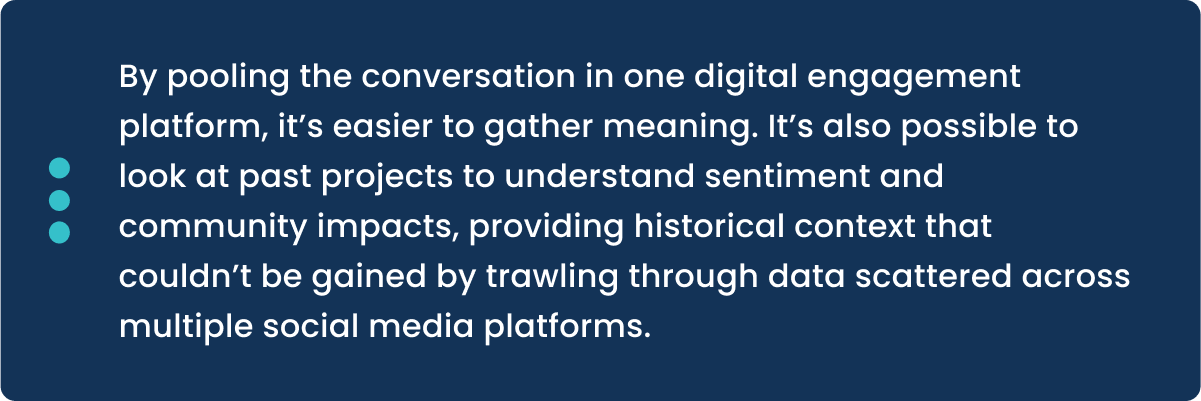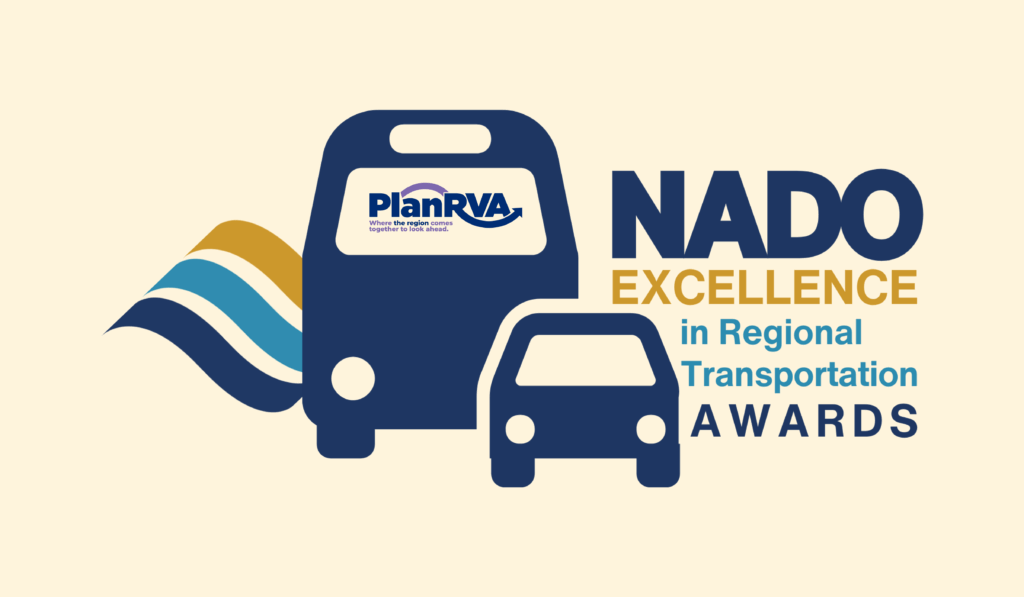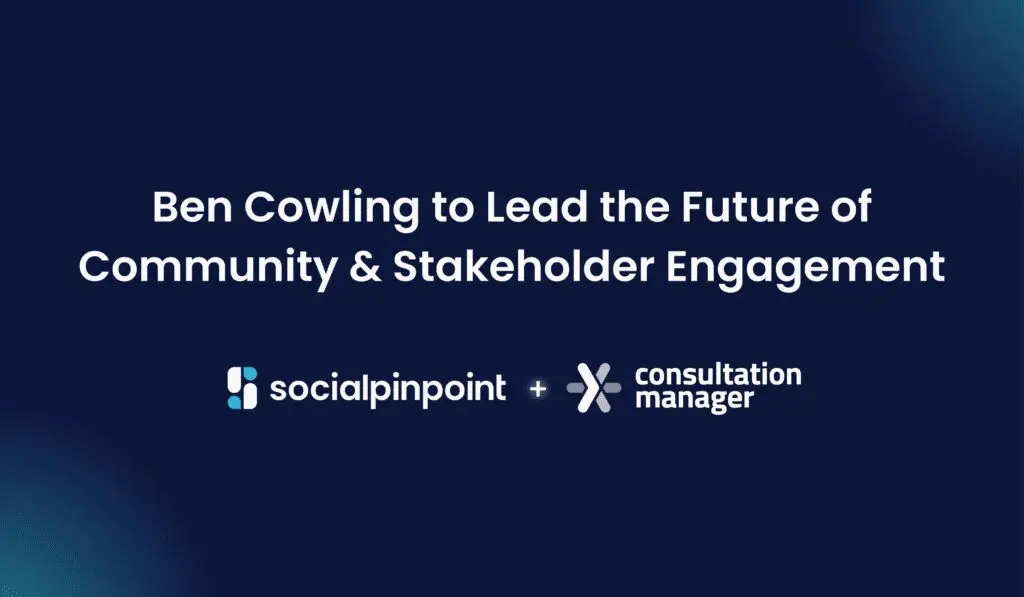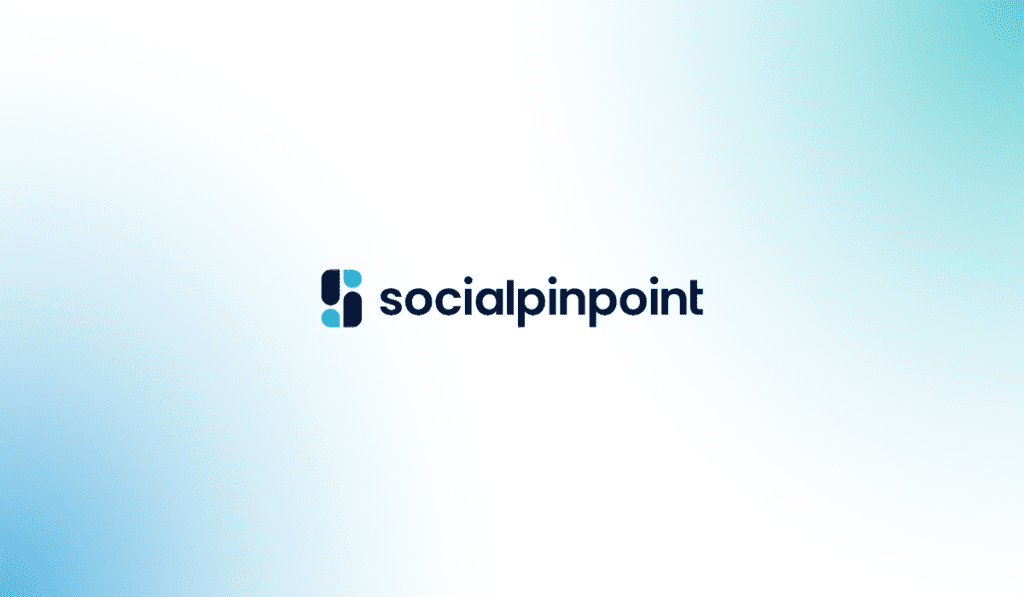Social media can be used to promote public engagement opportunities and educate the community. However, governments and organizations may need to set up a more controlled environment in order to hold deeper and more informed community-led conversations. Before you start using social media for public engagement, here are 3 considerations you should make.
As of 2021, over 4.48 billion people worldwide were using social media, with the average user accessing 6.6 platforms monthly. Given that the top three reasons people use social media are to stay in touch with friends and family, fill their spare time, and read news stories – it makes sense for governments and organizations to share information with the public in these spaces.
However, if you are trying to have an important conversation with your community and gather meaningful feedback from specific groups of people, there are a number of inherent social media risks that need to be accounted for.
Here are three considerations to make before you start conducting public engagement through social media.
- Your engagement strategy will be restricted to the design, tools, and rules of the social media platform.
- You will have limited control over the conversation.
- It will be difficult to gather meaningful insights.

1. Your engagement strategy will be restricted to the design, tools, and rules of the social media platform.
Online public engagement platforms are designed differently from social media platforms. Social media algorithms favor popular or personally relevant content within people’s feeds. When you’re engaging with the public in your own digital engagement platform, you can present the information that needs to be heard.
Can you provide an accessible space for diverse citizens?
You can also tap into accessibility features that give diverse citizens an equitable opportunity to gather information or join a conversation. Whereas, on social media, you can only use the features that are available on that platform.
If the platform isn’t easy to use or the translation tools are inaccurate, then you could be excluding various community members from participating.
Does the public feel safe to openly share their opinion?
On most social media platforms, people usually have to create an online profile to join, and openly sharing an opinion on a divisive topic can open them up to online bullying and have implications for other areas of their lives. Some community groups prefer to have privacy or anonymity before contributing to a conversation, meaning that a digital engagement platform will be required for them to participate.
So, before you decide to engage the public via social media you need to question whether the design, rules, and tools of the platform are conducive to a meaningful dialogue.
2. You will have limited control over the conversation.
If you try to engage with citizens on social media, remember that your message may be lost or confused within the huge volume of social media posts. Audiences are also fragmented across multiple platforms, so need to have an integrated promotion strategy to ensure that you reach everyone.
Are you able to keep the conversation positive, relevant, and respectful?
It can be difficult to get citizens conversing about a topic in a structured and organized way in this environment. It will also be harder to maintain respectful dialogue because many social media platforms take a ‘freedom of speech’ stance.
That means that it’s easy for harmful views to stifle participation. It’s also easy for misinformation to spread quickly because people can post and share their opinions with limited moderation. Social media platforms can also amplify the loudest voices in the room because they create higher engagement, which means that you can miss out on valuable opinions.

Will your messaging remain effective?
Your messaging will also need to fit within the posting parameters of the platform, often meaning that it has to be quick, brief, and compelling – which doesn’t always favor nuanced discussion about challenging topics.
Online public engagement platforms enable you to put important projects or ideas in front of people and spark conversation in a structured way.
They also have moderation interfaces that allow you to approve, reject, and refer content, as well as automated filters for profanities. They keep the conversation flowing in one place, rather than across countless pages, profiles, channels, and platforms where it’s impossible to connect the dots and make meaningful decisions.
The best public engagement platforms also include 24/7 human moderation so you can rest easy knowing that all public contributions are kept safe, respectful, and on topic.

3. It will be difficult to gather meaningful insights.
Conversations can get fragmented across social media platforms, resulting in disconnected reporting. Many social media platforms also monitor engagement metrics and trending topics so that brands or influencers can build their presence.
Are the insights you’re gathering actionable?
Social media metrics generally track impact and influence, as well as privileging speaking rather than listening. As a result, reports aren’t designed to understand and connect varied perspectives on complex topics, as they are in a digital public engagement platform.
Decision-makers need to conduct deep research in order to address many of the issues that are in front of them, and it’s impossible to get representative insights in environments that favor the loudest voices.
By pooling the conversation in one digital engagement platform, it’s easier to gather meaning. It’s also possible to look at past projects to understand sentiment and community impacts, providing historical context that couldn’t be gained by trawling through data scattered across multiple social media platforms.
Can you connect more meaningfully?
Social media platforms are a great avenue for keeping the public involved and promoting engagement opportunities. However, if you want to engage more deeply, then it’s important to direct people toward a dedicated engagement platform that can foster productive and inclusive conversations between people from all different walks of life.












